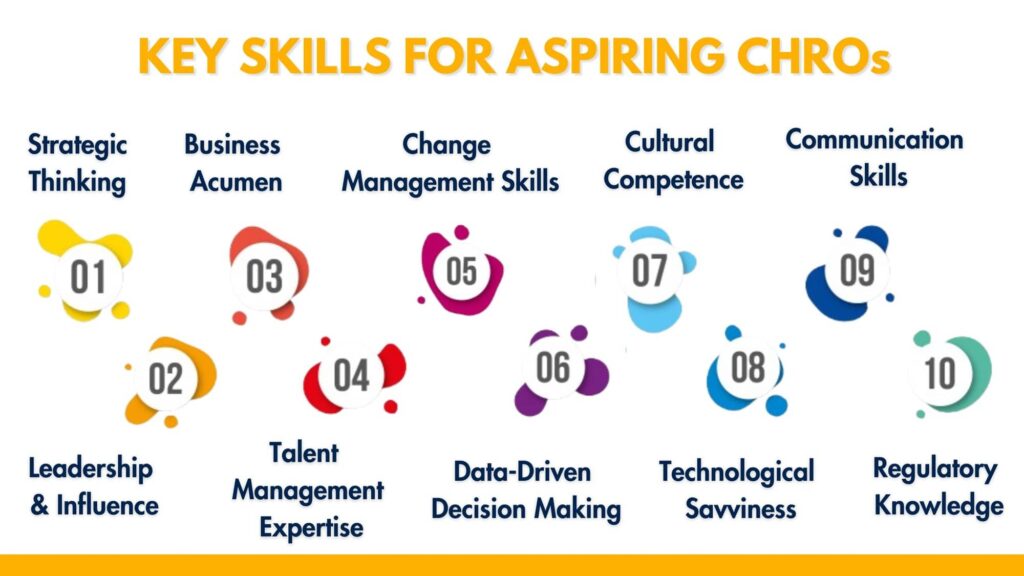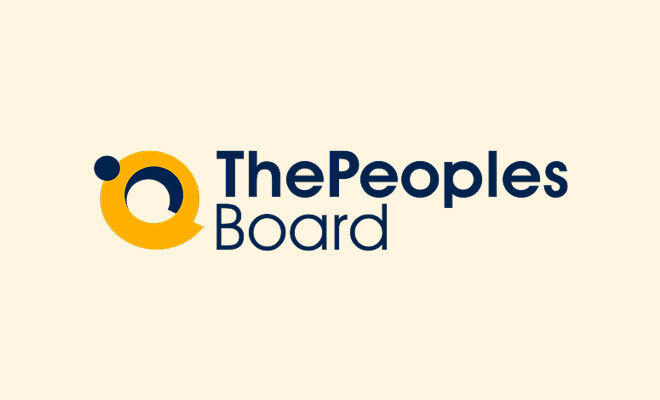If you are planning on becoming a Chief Human Resources Officer (CHRO), it is never too early to start planning. The executive position is crucial in shaping an organization’s people strategy, aligning it with business goals, and fostering a culture that drives success.
This means that CHROs need to be skilled in multiple areas while also being capable of keeping up with the dynamic nature of the HR industry as well as the company’s working field. To become a CHRO, one must possess a blend of technical HR expertise, strategic thinking, and leadership skills.
Needless to say, acquiring necessary skills for becoming a long and arduous task, but the rewards are certainly worth the effort. This article will explore the key skills required to succeed as a CHRO, tailored to the Indian context.
Who is a CHRO?
The CHRO is a senior executive who oversees all aspects of an organization’s human resources strategy. This includes talent acquisition, employee engagement, leadership development, compliance, and organizational culture. As a CHRO, you are not just a policy maker but a strategic partner to the CEO, contributing to business decisions and driving innovation through people management.
Why is the CHRO Role Crucial in India?
- Workforce Diversity: India’s workforce spans multiple generations, geographies, and socio-economic backgrounds. Managing such diversity requires nuanced HR strategies.
- Regulatory Landscape: Indian labor laws are complex and evolving, necessitating a deep understanding of compliance.
- Globalization: Many Indian companies are expanding globally, requiring HR leaders to manage cross-cultural teams.
- Digital Transformation: Technology adoption is reshaping HR functions from recruitment to performance management.
Essential Skills to Become a CHRO
To start your journey to becoming a CHRO, it is important to develop the skills required for the position. A CHRO is responsible for the well-being of employees across the company in every way, shape, and form. From business decisions to cultural initiatives, they have to remain on top of every HR decision that impacts the company.

Strategic Thinking
A CHRO must align HR initiatives with the company’s long-term goals. This requires understanding the organization’s vision, market dynamics, and competitive landscape.
How to Develop:
- Work on strategic projects, such as workforce planning or leadership development.
- Collaborate with other departments to understand business objectives.
Example:
A CHRO in an Indian IT firm partnered with the operations team to create a flexible work policy that improved productivity while reducing attrition.
Leadership and Influence
As a CHRO, you’ll lead the HR team and influence stakeholders across the organization. Building trust and demonstrating credibility are critical to this role.
How to Develop:
- Practice decision-making in leadership roles, such as heading HR committees or projects.
- Enhance your emotional intelligence to better understand and influence others.
Example:
The CHRO of a manufacturing company successfully implemented a mentorship program by securing buy-in from skeptical senior leaders.
Business Acumen
CHROs must understand financial metrics, market trends, and operational challenges to align HR initiatives with business outcomes.
How to Develop:
- Gain experience in cross-functional roles, such as operations or finance.
- Pursue certifications like the Strategic HR Leadership program offered by SHRM or XLRI.
Example:
The CHRO of an FMCG company proposed a cost-saving workforce restructuring plan based on a detailed financial analysis, which was approved by the board.
Talent Management Expertise
A CHRO must excel in talent acquisition, development, and retention. It is vital to be able to identify high-potential employees and create leadership pipelines.
How to Develop:
- Lead initiatives like employee development programs or succession planning.
- Stay updated with trends in recruitment and employee engagement.
Example:
A CHRO at an e-commerce company introduced gamification in the recruitment process, attracting top-tier candidates from India’s competitive job market.
Change Management Skills
Organizations have to adapt to changing technologies, markets, and employee expectations. As such, a CHRO must lead these transitions smoothly.
How to Develop:
- Gain experience managing organizational changes, such as mergers or new technology implementations.
- Learn change management frameworks like Kotter’s 8-Step Process.
Example:
The CHRO of a retail chain successfully transitioned 30% of its workforce to hybrid roles after the pandemic, ensuring minimal disruption.
Data-Driven Decision Making
The ability to analyze HR metrics and use data to inform decisions is becoming increasingly important. Metrics like employee turnover, engagement scores, and ROI on training programs help in making strategic decisions.
How to Develop:
- Familiarize yourself with HR analytics tools like Darwinbox, BambooHR, or SAP SuccessFactors.
- Learn basic data analysis and visualization skills through courses on platforms like Coursera or Udemy.
Example:
Using predictive analytics, a CHRO in a financial services firm identified high-risk employees likely to leave and introduced retention strategies, saving the company significant hiring costs.
Cultural Competence
Indian organizations are rich in cultural diversity. A CHRO must foster an inclusive workplace that respects differences and promotes collaboration.
How to Develop:
- Engage in diversity and inclusion initiatives.
- Learn about different cultural practices, especially if managing a global workforce.
Example:
A CHRO at a multinational in India launched cultural sensitivity workshops to improve team dynamics in cross-border projects.
Technological Savviness
With the advent of AI, automation, and HR tech platforms, a CHRO must understand how to leverage technology for efficiency and innovation.
How to Develop:
- Stay updated on emerging HR technologies.
- Implement tech-driven solutions in areas like recruitment or performance management.
Example:
The CHRO of a BPO implemented AI-based chatbots to handle employee queries, reducing the workload on the HR team and improving response times.
Regulatory Knowledge
Compliance with labor laws and regulations is a fundamental aspect of HR in India. A CHRO must ensure the organization adheres to laws while balancing employee needs.
How to Develop:
- Stay updated with changes in labor laws through workshops or seminars.
- Consult with legal experts to understand the implications for HR policies.
Example:
A CHRO ensured compliance with the new wage code in India by restructuring salary components without impacting employee morale.
Communication Skills
A CHRO must communicate effectively with stakeholders at all levels, from employees to board members. Clear and persuasive communication is essential for gaining support for HR initiatives.
How to Develop:
- Practice public speaking and presentation skills.
- Seek feedback to refine written and verbal communication.
Example:
The CHRO of a startup presented a compelling case to investors on how their employee-centric policies contributed to business growth.
Pathways to Becoming a CHRO
- Educational Foundation: A degree in HR, business management, or a related field is essential. Advanced certifications like an MBA in HR or SHRM-SCP can add value.
- Gain Broad Experience: Work across various HR functions, such as recruitment, employee relations, and learning & development.
- Build a Network: Connect with industry leaders, attend HR conferences, and join professional bodies like NHRD or SHRM India.
- Continuous Learning: Stay updated with trends in HR and business through courses, webinars, and leadership programs.
Conclusion
Becoming a CHRO is not just about mastering HR skills; it’s about evolving into a strategic leader who can drive business success through people. For Indian professionals, the journey involves navigating a unique mix of challenges and opportunities, from managing diverse workforces to staying compliant with labor laws.
With the right blend of strategic thinking, leadership, and technical expertise, you can rise to the top of the HR ladder and make a lasting impact on your organization’s success. Start building these skills today, and you’ll be well on your way to becoming a CHRO.




